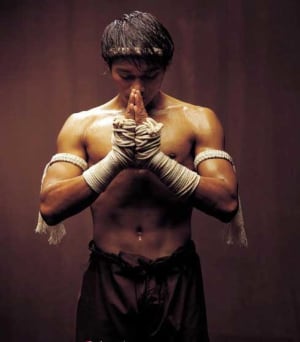
Muay Thai's origins can be traced to ancient Thailand (formerly known as Siam) where it evolved from various regional fighting styles and martial traditions. The exact timeline of its development is unclear, but it is believed to have been practiced for over a thousand years.
Initially, Muay Thai was a practical form of combat used by Thai warriors in warfare. Over time, it evolved into a popular sport and was used as a means of entertainment for the masses. It incorporated strikes using various parts of the body, including fists, elbows, knees, and shins, making it a formidable and versatile fighting art. During the reign of King Naresuan in the 16th century, Muay Thai started to become more organized and regulated. Formal rules and a code of ethics were established for the sport. Fighters began to wrap their hands with hemp rope for protection, and contests were held in front of royalty.
The period from the late 19th century to the mid-20th century is often referred to as the "Golden Age" of Muay Thai. This era saw the sport's popularity soar, with renowned fighters like Nai Khanom Tom achieving legendary status. Muay Thai matches were held in stadiums across the country and attracted large audiences. In the 1930s, Muay Thai underwent further modernization and rule standardization. Gloves similar to those used in Western boxing were introduced, and weight classes were established. This period also saw the formalization of Muay Thai training techniques and the development of a distinct fighting style
In the latter half of the 20th century, Muay Thai began to gain international recognition and spread to other countries. The sport became popular in Europe, North America, and other parts of the world, leading to the establishment of Muay Thai organizations and competitions outside of Thailand.
Today, Muay Thai is a globally recognized sport and martial art. It is practiced by people of all ages and backgrounds, both as a means of self-defense and as a competitive sport. It has also influenced the development of mixed martial arts (MMA), with many MMA fighters incorporating Muay Thai techniques into their training.
In 1995, the International Federation of Muaythai Associations (IFMA) was founded to govern and promote the sport worldwide. Muay Thai is also an integral part of Thai culture and continues to be celebrated through festivals and traditional ceremonies in Thailand.

